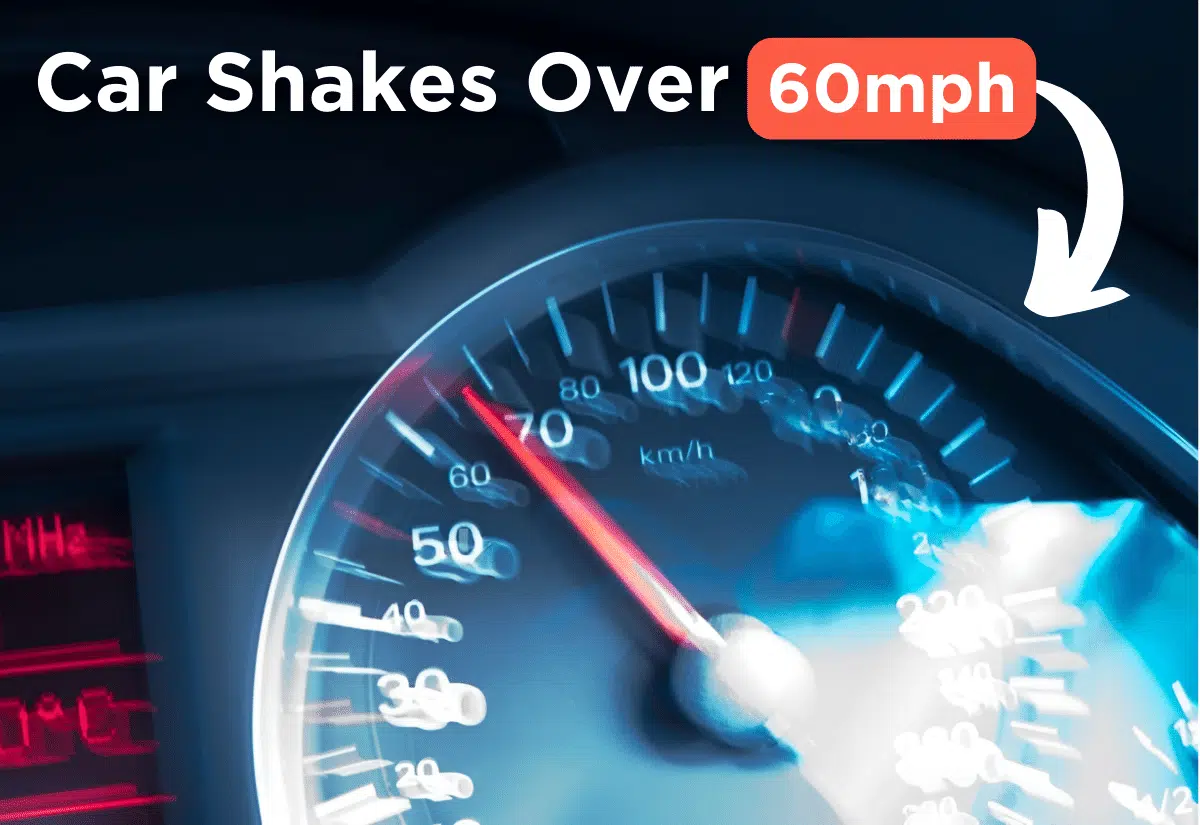New tires vibration at 60 mph is often caused by an imbalance in the tire or wheel assembly. When the weight distribution is uneven, it can result in a shaking or vibrating sensation while driving.
This issue typically occurs when a tire is not properly mounted or when it has worn unevenly over time.
Possible Causes Of Tire Vibration At 60 Mph

Credit: mechanicsdiary.com
Experiencing tire vibration at 60 mph can be a frustrating and concerning issue for any driver. Not only can it affect the overall comfort of the ride, but it can also compromise safety and lead to more serious problems if left unaddressed.
To determine the cause of this vibration, there are several factors to consider, including wheel misalignment, tire balance issues, and suspension problems.
Wheel Misalignment
One possible cause of tire vibration at 60 mph is wheel misalignment. When the wheels are not properly aligned, they may not be parallel to each other or perpendicular to the ground, causing an uneven distribution of weight and pressure on the tires.
This imbalance can result in vibrations that are felt through the steering wheel or the entire vehicle.
Tire Balance Issues
Tire balance issues can also contribute to vibrations at higher speeds. When a tire is out of balance, it means that one section of the tire is heavier or lighter than the rest.
This imbalance can result in vibrations as the tire rotates, particularly at higher speeds. It’s important to note that tire imbalance can occur over time as the tire tread wears unevenly, or it can happen due to external factors such as hitting a pothole or curb.
Suspension Problems
A problematic suspension system can also lead to tire vibration at 60 mph. The suspension system is responsible for absorbing shocks and vibrations from the road, but if components such as shocks, struts, or control arms are worn or damaged, it can affect the smoothness of the ride.
This can result in vibrations that are transmitted through the tires and felt by the driver.
If you are experiencing tire vibration at 60 mph, it is essential to have your vehicle inspected by a qualified technician. They will be able to diagnose the underlying cause and recommend the appropriate repairs or adjustments. 2
By addressing these issues promptly, you can ensure a safer and more comfortable driving experience.
Troubleshooting Steps
If you’re experiencing vibrations in your vehicle’s tires while driving at 60 mph, it’s important to take action quickly to ensure your safety and prevent any further damage. To help you troubleshoot the issue, we’ve outlined a few key steps to follow:
1. Check Tire Pressure
First and foremost, check the tire pressure to ensure they are properly inflated. Low tire pressure can cause uneven wear, leading to vibrations at higher speeds.
Refer to your vehicle’s owner manual for the recommended tire pressure and use a reliable tire pressure gauge to measure and adjust accordingly.
2. Inspect Wheel Alignment
Poor wheel alignment is another common cause of tire vibrations. Misaligned wheels can cause uneven tire wear, affecting the smoothness of your ride.
To check the alignment, you can visually inspect the tires for any signs of uneven wear patterns. If you notice any irregularities, it’s advisable to take your vehicle to a professional mechanic for a proper alignment service.
3. Balance And Rotate Tires
Tire balancing and rotation are critical for maintaining overall tire health and reducing vibrations. Over time, tires can develop imbalances, causing vibrations at higher speeds.
Regularly rotating your tires helps to ensure even wear, while balancing minimizes vibrations caused by uneven weight distribution. A professional tire shop can perform these services to restore smoothness to your ride.
4. Inspect Suspension Components
Faulty suspension components can also contribute to tire vibrations. Inspect your vehicle’s suspension system for any signs of damage, such as worn-out shocks or struts. Damaged suspension components can affect tire contact with the road surface, leading to vibrations.
If you notice any issues, it’s recommended to have your vehicle inspected by a qualified mechanic who can identify and address any suspension-related problems.
By following these troubleshooting steps, you can address the root cause of tire vibrations and enhance your driving experience. Remember, if the issue persists or you are unsure about performing any of these steps yourself, it’s always best to consult with a professional mechanic.
Frequently Asked Questions Of New Tires Vibration At 60 Mph
Why Does My Car Shake When I Hit 60 Mph With New Tires?
Your car may shake when you reach 60 mph with new tires due to an issue with wheel balance or alignment. It is crucial to ensure that your tires are properly balanced and aligned to prevent vibrations.
Is It Normal For New Tires To Vibrate?
New tires may vibrate initially as they settle into their tread. This is normal and should decrease over time. If the vibration persists or becomes severe, it may indicate an alignment or balance issue, and you should have your tires checked by a professional.
Do New Tires Ride Rough At First?
New tires may initially feel rough due to their stiffness, but this should improve as they wear in. The ride will become smoother over time.
Had Wheels Balanced But Still Vibrating?
If you’re experiencing vibrations after having your wheels balanced, it could be due to a few reasons. It may be necessary to check for other issues such as worn-out tires, bent rims, or suspension problems. Consider getting a professional inspection to determine the cause and find a suitable solution.
Conclusion
To sum up, if you’re experiencing new tire vibrations at 60 mph, it’s crucial to address the issue promptly. A balanced wheel alignment and tire balancing can help ensure a smooth ride and enhance overall safety. Don’t ignore the signs of vibration, as they could indicate potential tire defects or alignment problems.
Seek professional assistance to diagnose and fix the issue, ensuring a comfortable and secure driving experience.
